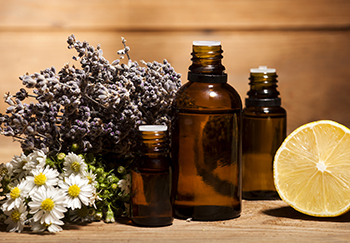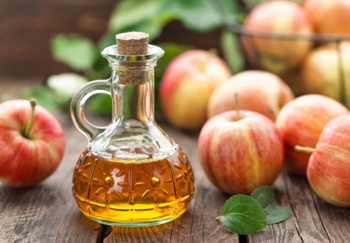
Essential oils are highly‐concentrated liquids made from plants. Examples include eucalyptus oil, clove oil, camphor, citronella and tea tree oil. These products contain many active chemicals and have strong fragrances. This makes them popular ingredients in soaps, massage oils, perfumes, bath oils and salts, home fragrance diffusers and potpourri.
Benefits & Risks of Essential Oils
Proponents of aromatherapy and herbal remedies claim that some essential oils are therapeutic in treating certain health concerns. People may not realize, however, that some can also be very toxic. Upon contact with the skin or eyes, essential oils may cause irritation such as redness and burning, particularly if undiluted. However, the real danger comes from swallowing them.
Children are attracted to the sweet, citrusy, or minty fragrances, and may mistake the products for familiar treats. Essential oils contain highly concentrated active chemicals, so it doesn’t take a lot to cause health effects. These effects vary from oil to oil, but may include nausea and vomiting, drowsiness, confusion, difficulty walking, restlessness, seizures, coma or liver failure.
Children have died from drinking as little as one teaspoon of eucalyptus oil, camphor or wintergreen oil. If you plan to use them in your home, treat them the same way you would treat medicines, cleaning products, or other household chemicals: Keep them stored up high, out of the sight and reach of children.
Ingestion Emergency?
Call Blue Ridge Poison Control immediately. 1.800.222.1222
Other Essential Oil Safety Tips
- Keep essential oils in their original containers. Transferring them to another container could lead to confusion.
- Only buy products in child‐resistant containers, if possible.
- Always dilute essential oils if you plan to use them topically.
- Certain essential oils are flammable, so keep them away from flame sources.
- Many are unsafe to swallow. Consult an expert before ingesting them in any form.
- If you are pregnant or nursing, talk to your health care provider before using essential oils.
Emergency Help
If you suspect someone may have had an unsafe exposure to an essential oil, call the nurses at Blue Ridge Poison Center immediately at 1.800.222.1222. Do not wait for symptoms to develop, and do not induce vomiting. Bring the product container with you to the phone so that our experts can identify the product and determine how much the victim was exposed to. Your call is always free and confidential, and we are open 24 hours a day, every day.
The Blue Ridge Poison Center originally publised a version of this content in the August 2017 issue of its newsletter, The Antidote.


it would be useful to hear more about how essential oils are being used in some health care settings. For example from NIH;
https://www.cancer.gov/about-cancer/treatment/cam/hp/aromatherapy-pdq